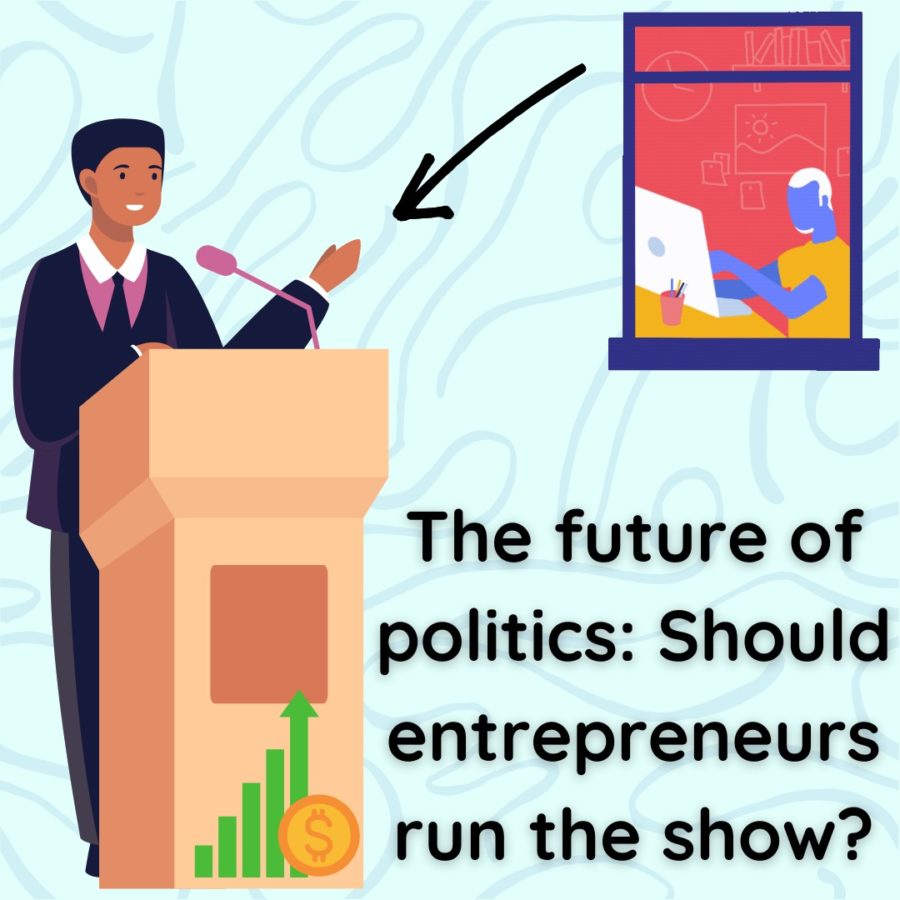The future of politics: Should entrepreneurs run the show?
As the 2016 election came to a close, former President Donald Trump became one of the eight business executives to make the leap from running a business to becoming president of the United States. This prompted the question: should businessmen and businesswomen be the future of politics?
Entrepreneurs going into politics, or more specifically, the presidency, began a century ago in 1920. Warren Harding, the 29th president of the United States, raised $300, equivalent to around $4,000 in 2020, to purchase the Marion Star, a popular newspaper, in the 1880s and owned it until around 1923. Harding’s strategy in the 1920 election was to convince Americans that he was a man of the people, a true embodiment of the “American dream.” He won by a landslide against James Cox in both the popular vote and electoral college.
“I’m a businessman, not a politician,” Trump said during his election campaign.
In other words, he told people to vote for him because he has experience in a field that does not even closely resemble politics. Many U.S. citizens believe that political issues can be solved by someone who is willing to get their hands dirty as well as having the negotiating and networking skills associated with being an entrepreneur. Presidential candidates with useful skills were appealing to many and were thought to be beneficial to the country as a whole.
While business owners have several tasks a day, like signing documents or managing their employees, a major part of their job is keeping their company profitable. Politicians, however, have significantly different responsibilities, like serving on committees, serving the public and campaigning to get elected or re-elected. The difference in priorities between business owners and politicians shows that business people should not migrate into the political world. After all, the political field should not be one of profit.
Another disconnect between business owners and politicians is the way their issues are handled. Chief Executive Officers (CEOs) that own private businesses have more authority to make decisions and do not have to have consent from people outside the company. In the political world, politicians are only able to make decisions within their jurisdiction. For example, a governor is only able to implement laws within their state, but Congress and other politicians have to step in to make more substantial decisions. The political world requires more skills in persuasion, instead of just having the ability to execute, a skill many CEOs possess.
However, the desire to improve the economy is an upside to having a business executive as a president. In order to grow their business further, business executives are able to create jobs and outsource work that they do not necessarily need to take care of personally. As seen with the Trump administration, over the past four years, 6.7 million jobs were created, and unemployment rates dropped to the lowest rate in fifty years. Job openings increased 20 percent and weekly earnings also went up around two percent. With all these jobs created and stock prices increasing, our nation should be less in debt, but as federal deficits increased, generated by spending more than what the nation brings in, over $2.5 trillion was added to the national debt.
A major red flag for business people migrating to the political world is that even if CEOs become politicians, they still “own” their companies. Business owners, if serving in public office, are required to pass off their company in a blind trust as to prevent a conflict of interest. Yet, Trump simply put his companies in a trust managed by his two older sons and a business associate. He, and any other business owner for that matter, cannot simply forget the business they used to own. Trump is still able to pass laws that give his businesses lighter regulation or advantages, instead of thinking what is beneficial to all companies.
“Businessmen might be passionately in favor of free markets, but seem eager to lobby for a little special government subsidy or lighter regulation for his own company,” American economist Milton Friedman said.
As much as people would love to see Jeff Bezos or Elon Musk take office, they are going to have to wait. Entrepreneurs should stick to business and people with experience in the political field should handle the politics.






